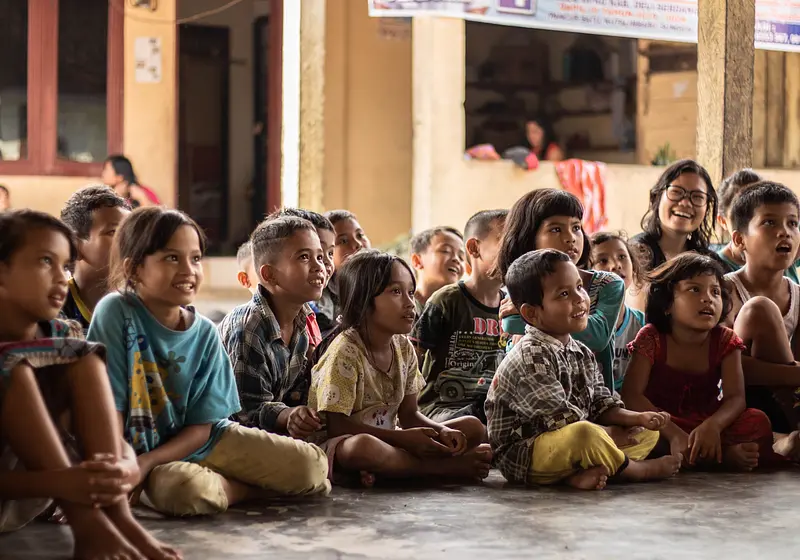Waking up to work, going to sleep for a few hours, then going to work the next day is a disheartening routine that many individuals living in poverty find themselves trapped in. They put in their utmost effort, and yet, despite the relentless struggle, they remain chained to the same economic placement they were in beforehand. In this cycle of poverty, people become slaves to labor, battling not for success or luxury but merely to survive.
Living in poverty is exhausting. It’s a complex experience that extends beyond financial hardship, encompassing one’s physical and mental well-being, access to opportunities, and overall quality of life.
People often have misconceptions surrounding this issue. Although millions of Americans who receive government aid work their hardest to sustain themselves, many still believe the myth that “the poor could earn a better life for themselves but are content living on government benefits.” Others think that “if you hit rock bottom, you can only go up from there;” however, it is truly not that simple, especially when you are born into these dire circumstances.
Generational poverty, also referred to as the “Cycle of Poverty,” is characterized as poverty that is passed down from one generation to the next, affecting families for multiple generations. Unlike situational poverty, which may result from a temporary setback such as job loss or illness, generational poverty becomes a way of life, ingrained in the fabric of families over time.
Let us slide into your dms 🥰
Get notified of top trending articles like this one every week! (we won't spam you)Understanding the Cycle of Poverty
This phenomenon traps families in a web of economic hardship, limiting their ability to break free and achieve upward mobility. This cyclical pattern is deeply rooted in various interconnected factors, creating a series of challenges that are never-ending. Lack of education limits job opportunities, leading to economic struggles that perpetuate the cycle of poverty, trapping subsequent generations in a relentless battle of financial hardship.

Image Credit: VectorMine from Adobe Stock
Families in poverty often face barriers to accessing quality education. Insufficient resources, underfunded schools, and a lack of educational support at home contribute to a disadvantage from the early stages of a child's development.
This limited educational foundation becomes a crucial factor in the perpetuation of the cycle, as children will not be able to acquire enough knowledge or the necessary skills to prepare themselves for the job market. The lack of access to higher education or vocational training further narrows the scope for career advancement.
With a compromised education and social skill set, individuals from impoverished backgrounds often find it challenging to secure stable and well-paying employment. Job opportunities may be limited, and the available options may offer low wages and minimal job security.
Trying to make ends meet while earning minimum age tends to not suffice when providing for multiple people. The meager earnings from low-wage jobs often fall short of providing a pathway out of poverty. Individuals and families struggle to meet basic needs, including housing, healthcare, and nutrition. The constant financial strain leaves little room for savings or investments in education and skills development, fueling this cycle.
As individuals in poverty become parents, they unintentionally pass down the same circumstances to their children. The limited resources, educational disadvantages, and employment struggles become an inherited legacy. Children born into poverty face similar obstacles, reinforcing the systemic nature of the problem.

Take the Quiz: Which Squid Game Player Are You?
Ever wondered which player you’d be if you found yourself in the Squid Game universe? Take this quiz to find out which character matches your perso...
Factors Preserving this Inequality:
The lack of access to quality healthcare exacerbates the challenges faced by families in poverty. The availability and quality of health care resources are heavily dependent on a patient’s financial situation or employment. Jobs that are commonly available to individuals in low-income communities often come with minimal or no health insurance benefits. This lack of employer-sponsored coverage can significantly impede access to essential healthcare services.
If one tries paying for healthcare, the high cost can create a cycle of debt, hindering the ability to rise up the social ladder. However, without health insurance coverage, even basic medical consultations, medications, and preventive care can become incredibly expensive. This can lead to health issues that can prevent individuals from maintaining steady employment, creating further financial instability. By weighing the options against each other, it can often seem like a lose-lose situation.
The absence of positive role models and social capital in impoverished communities compounds the difficulties faced by those seeking to escape generational poverty. Limited exposure to individuals who have successfully overcome similar challenges can create a sense of hopelessness, making it harder for individuals to envision a different future for themselves.
Systemic barriers, such as discriminatory policies and institutionalized racism, also play a significant role. According to Statista, the races and ethnicities with the highest poverty rate in the US in 2022 were American Indian and Alaska Native, Black, and Hispanic.
Given that many of these communities face systemic disadvantages, breaking the cycle becomes an uphill battle. Policy changes and social reform are essential to dismantle these barriers and create a more equitable society.
Breaking the Cycle:
Breaking free from the cycle of poverty requires targeted interventions at various levels.
A fundamental step in stopping the cycle of generational poverty is investing in education. Ensuring equal access to quality education for all, regardless of socio-economic background, can empower individuals to acquire the skills and knowledge needed to secure better opportunities and escape the cycle of poverty.
Addressing the root causes of economic inequality is crucial, as well. This includes implementing policies that promote fair wages, equal employment opportunities, and protection against workplace discrimination.
Improving access to affordable and quality healthcare is vital for addressing the health-related challenges faced by individuals in poverty. By ensuring that everyone has access to necessary medical services, society can reduce the impact of health issues on economic stability.

Image Credit: Kenny Eliason on Unsplash
The unfortunate truth behind generational poverty is a multifaceted issue deeply rooted in our society. It has profound implications of economic hardships that echo across age groups. Departing from the cycle isn’t simple; no one can magically rise up from the ashes and make their burdens go away.
Nevertheless, society can take significant steps towards creating a more equitable future where individuals have the opportunity to free themselves from the shackles of generational poverty.
















